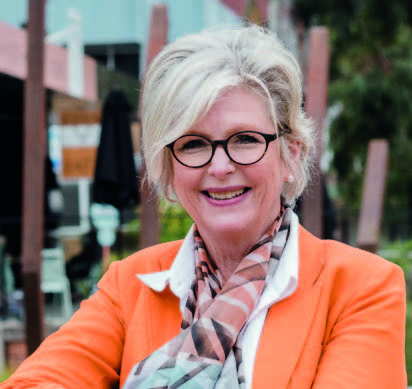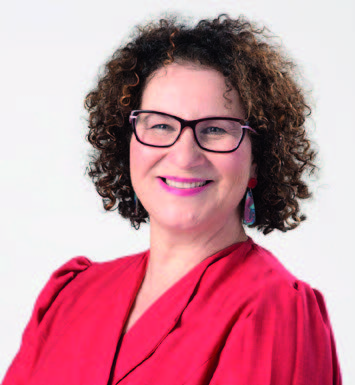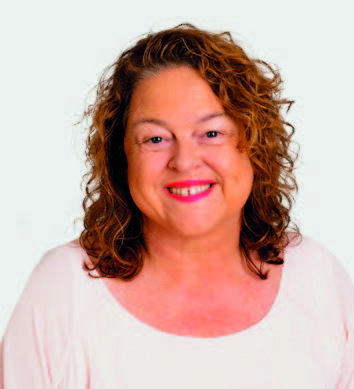29 November 2021
Article from January 2022 edition of INPractice
A five-year-old’s conversion to fighting the good fight and other nursing professionals determined to fix a broken health system.
Registered nurse, trade union leader and federal politician Ged Kearney remembers her first foray into unionism. She was just five years old.
The union in question was the Kearney Family Union.
“There were nine children and my father owned a hotel in Richmond, Victoria, very working class in those days, we all worked but none of us got paid,’’ Kearney recalls.
“My brother, he must have been 14, I was about five. He asked my father if we could get paid and Dad said ‘No son, that’s not how it works, you get fed, roof over your head, family business’.
“And my brother tried to join the Liquor and Allied Trade Union and they wouldn’t have him because he was too young or he was the boss’s son, I can’t remember why.
“So, we called a family meeting, organised by the kids, and we formed the Kearney Family Union, elected my brother secretary.
“My parents came into the meeting. I distinctly recall my brother saying ‘Dad, you’re talking to the secretary of the Kearney Family Union and we’ve got a log of claims’.
“My Mum was furious, my Mum was like ‘children should be seen and not heard’. But my Dad loved it, thought it was wonderful. So, he’s like ‘OK, secretary’. I can’t remember what was in the log of claims but I do remember my sister put in there that if you’ve got an exam in the morning you shouldn’t have to work the evening shift the night before.
“And we got paid, I remember getting $4 in my first pay packet ever. Pretty good money for the ’70s.’’
The family coup was a sign of much bigger things to come for Ged. A Registered Nurse at Mercy Private Hospital, she went on to become Assistant Secretary of the then Australian Nursing Federation (2002 to 2008), then Secretary of the ANF (2008 to 2010), President of the ACTU (2010 to 2018) and is currently the federal Labor member for the Victorian seat of Cooper and Shadow Assistant Minister for Health and Ageing.
Kearney’s journey mirrors that of several nurses who have made a successful run into politics, notably Helen Haines, Nat Cook and just possibly the ANMF (SA Branch)’s very own Marisa Bell. A former President of the ANMFSA, Ms Bell is the newly endorsed Labor candidate for the federal seat of Mayo.
Politics, it seems, may very well be a natural transition for nursing professionals. In this case a passion for caring for patients morphs into a passion for caring for communities.

DR HELEN HAINES
“For me, like most nurses really, I was motivated as a young person to have a life that had meaning, to make a difference to the lives of other people,’’ said Dr Helen Haines, Independent Member for the Victorian regional seat of Indi (her electoral office is in Wangaratta), registered nurse and nursing academic.
“Almost every nurse who ever decided to enter the profession would say something like that. That is certainly true for me.
“What became clearer to me as my career went on is that there are so many aspects of life that influence a person’s health and what I was seeing as a nurse and a midwife providing care in a hospital-based setting was often the accumulation of many other factors.
“At a point after I’d been involved with setting up a caseload midwifery practice in Wangaratta - I co-founded that, one of the earliest, if not the earliest one in rural Australia, it’s still going to this day - I started undertaking research to provide evidence to the funders that what we were doing was working in terms of outcomes and I became very interested in research,’’ Dr Haines said.
“I then took on a Masters’ degree in public health (later a PhD in Sweden in Medical Science, hence her Doctor title) and in undertaking that course of study it became really clear to me about the importance of the social determinants of health and the impacts of policy on health outcomes and service delivery and people’s lives.
“So I think I became politicised around health care at about that point.
“I am a representative of a rural and regional electorate so my focus is on rural health rather than metropolitan issues. Of course, many of them are related … but they (health issues) are far more exaggerated in rural and regional Australia,’’ Dr Haines said.
“Something like mental health in rural and regional areas, we know that the prevalence of serious mental health problems or even the high prevalence of disorders, anxiety and depression, the prevalence is similar to a city location, but the outcomes are much, much poorer in regional areas and that’s largely attributable to the lack of professional services.’’

MARISA BELL
Adelaide intensive care nurse Marisa Bell worked until this year as an educator with the Australian Nursing and Midwifery Centre (ANMEC), a service of the ANMF (SA Branch). She is the Labor Party’s new endorsed candidate for the Federal South Australian seat of Mayo.
Marisa, a former ANMF (SA Branch) President, has long been an active campaigner, dedicated to improving the working lives of nurses, midwives and care workers, and to generally improving the level of care provided to the broader community.
Marisa’s alarm at the spiralling crisis in the Australian health system convinced her to take the fight to the political arena as Labor’s candidate for the seat of Mayo.
She has been a resident in this large, diverse federal seat for decades. “As a frontline worker, I have personally experienced the stress our health system is under,’’ Ms Bell says. “I have witnessed first-hand the negative impact federal government cuts and the ensuing lack of resources can have on patient health outcomes.
“Sadly, I have walked into an Adelaide hospital A&E department just after yet another reported violent incident against health workers. With other colleagues, I have been handed an alert security device and found myself surrounded by police and security guards required to keep watch over significant numbers of mental health patients.
“Some of these patients had been waiting up to three days to be allocated a bed.
“I’ve witnessed the impact that missed care, delayed care and delayed surgery can have on patients’ outcomes.
“I’ve worried about increased lengths of hospitalisation due to clinical deterioration.
“Along with your readers, I have witnessed the devaluing of our health workforce and the lack of fair remuneration. I have witnessed the frustration and despair of dedicated and professional workers unable to meet their patients’ needs.
“Now, as a candidate, I’m standing up for the wellbeing of my community.
“Wellbeing’ has, of course, a very broad meaning. It includes access to health services embracing primary health care, mental health, aged care, health promotion and dental care. It also includes education, the environment and real action on climate change,’’ Ms Bell said.
“Wellbeing includes access to meaningful employment, job security, welfare, safe, secure and affordable housing, the prevention of domestic violence, programs for young people, and the promotion of positive ageing.’’
For Marisa, as it is for Nat Cook, Ged Kearney and Helen Haines, climate change is a major focus.
Howard Catton, CEO of the International Nurses’ Council (ICN), firmly believes that nurses should be at the heart of health policy decision-¬making and leading health care systems and delivery.
“And I may well mention climate change as well. That for me, and for the ICN, is an example of something arguably even bigger than the pandemic, and nursing absolutely needs to be at the centre of that discussion as well,’’ he said.
Marisa and her husband have been volunteers with the CFS for 15 years.
“Climate change is important to me because, essentially, climate crisis is a health crisis,’’ says Ms Bell, who was forced to evacuate her Adelaide Hills home last summer because of a bushfire.
“As a health care worker, I know the impacts that heat can have on our body systems. Heat can affect our ability to function in everyday life.
“An increase in temperature by one or two degrees can have a significant negative impact on the human body. An increase of two degrees can cause severe body cell and organ dysfunction. An increase in global temperature of two degrees would be just as catastrophic for humanity.
“Members of the community with complex, chronic conditions and comorbidities are at greater risk from global warming. That’s why we’ve already seen an increase of heat-related admissions in our hospitals.
“It’s why we see increased presentations of dehydration, kidney failure, respiratory failure, cardiac failure and heart attacks, leading to death. Our future health and rampant climate change are intrinsically connected.”

NAT COOK
Says Nat Cook, Registered Nurse and Labor MP for the South Australian seat of Hurtle Vale: “We are facing a climate crisis and everybody needs to acknowledge that.
“I’m sick of hearing troglodytes make excuses about it. It’s true, it’s fact, it’s science, it’s real and it’s one of the absolute number one things we must focus on. It’s affecting our health and wellbeing and will affect our health and wellbeing significantly over the next 50 years.
“I don’t want my son (Sid) living in a world where he can’t enjoy life as I’ve enjoyed it. We must protect the environment, so climate change is hugely important on our agenda.
“And nurses who can speak to the people in a way that they are understood are invaluable in politics.’’
Ms Cook’s life began to transition towards politics after the tragic death of her first son Sam to a one-punch attack at a party in 2008. She became an anti-violence campaigner, forming the Sammy D Foundation to educate young people on the impacts of bullying and drug and alcohol-fuelled violence.
“So I took this side step from being a pure clinical and administrative nurse to public health and choice decision-making and that led me to communicate a lot with MPs and work with them on various policies,’’ she said.
“I found my voice in terms of some of the legislative offerings that were being put up and I found the state Labor Government here (before the Marshall Government) really great to work with in relation to that, they really listened to what I had to say.
“And then when my local MP (Bob Such) passed away (in 2014), I had a two-year-old at the time, I thought ‘Maybe it’s time? Maybe this is my opportunity to really step up for my community and make the world a better place for my son for the rest of our community’.’’
Of the current rotten state of health in SA, Ms Cook says: “It’s really frustrating to watch. I still engage with dozens of health professionals every week that reach out to me, mostly in desperation. In contrast, I listen to the lines coming out (of Government), ‘nothing to see, hear, we’ve got this covered’, It’s rubbish.
“The challenges of the health system have been now long term, from our point of view it started with some enormous cuts to health going back to the Hockey budget under Tony Abbott.
“There were massive cuts, that then led to a cascade of events for us to all sit back and go ‘Hang on a minute, are we going to be able to afford health in 10 years? What’s going to happen to the budget?
“And now I watch my colleagues struggling every day with record numbers of ramping. In South Australia, we do not have COVID, not yet, we simply don’t, and so to watch them struggling now how they are now, if we do get COVID here, it really worries me.’’

GED KEARNEY
As a union leader Ms Kearney has tallied an impressive number of wins for health professionals and everyday workers.
“I think probably when I was Victorian (ANMF) president, I can’t escape the fact that we established nurse-patient ratios in Victoria which I am incredibly proud of, to be part of that,’’ she said.
“There was huge industrial action around this. We held a meeting and all the media were there filming us going into the meeting. When I got inside somebody said to me ‘We’re about take unprotected action, I hope you brought your toothbrush because you might be going to jail’.
“We were going to break the law, we were going to have unprotected action, which we did do, to get nurse-patient ratios. That was pretty scary. Of course, we did win that campaign in the end. We broke the law and now nurse-patient ratios in Victoria are the law.
“At the ACTU I think one of the things I’m most proud of is starting the campaign for paid family domestic violence leave,’’ Ms Kearney said.
“Finally, we’ve got a commitment from the Labor Party. We now have unpaid leave, this (Morrison) Government has given unpaid family domestic leave, but we have a promise from Labor to have paid leave. So I’m very proud of that.’’
The vexed issue of aged care has also been a long-time concern.
“I’ve worked very closely with the nurses and the other aged care unions in trying to bring about the much-needed changes in aged care,’’ Ms Kearney said.
‘It’s interesting, when we ran the ‘Because We Care’ campaign way back when I was at the ANF, it was about transparency and the accountability of funding, about skills mix and minimum staffing levels, decent pay and career structure; all of the things that we are still fighting for now.
“I’m very pleased to say that Anthony Albanese has made some really strong commitments in this area and I think if Labor is elected we will have a much better and much stronger aged care sector.
“One thing that Mark Butler (South Australian Shadow Federal Labor Minister for Health And Ageing) and I are very interested in is expanding the scope of the current health workforce, we’ve got to tackle this issue of top of scope of practice and really expand nurses’ access to the MBS,’’ Ms Kearney said.
“Other allied health professionals need to be much more accessible to the community and really utilised to the maximum of their capacity and capabilities. We will be working closely with the ANMF on that.
“That’s an area we think the pandemic has shown that if you want to use every inch of your workforce then we’ve really got to look at this issue.’’
While Ms Kearney, Ms Cook, Ms Bell and Dr Haines continue to advocate for a vastly improved health system, they are equally vocal about the need for the community to engage more robustly and vigilantly with their elected representatives.
“Don’t just gripe about it, go and talk to your member of Parliament or get involved yourself,’’ Dr Haines said. “Be the change you want to see.
“Get involved, whether you want to join a political party, whether you want to support an independent, whatever it is you want to do, get involved,” said Independent MP Dr Haines
“It’s amazing what can happen if everyday people get together and have their voices heard. You really can change policy.’’
“Absolutely I would be recommending people contact myself or their local members,’’ Ms Cook said.
“Or (State Labor health spokesperson) Chris Picton or contact us via our leader’s office, it will get to the right person.
“What we are being served up now is not satisfactory, it’s not good enough and that is on a state and federal level and people deserve much better and I want to make sure that that’s what happens.’’
Says Ms Bell: “I’ve been a health care worker for 41 years and an intensive care nurse for 35 years. During all that time I’ve been a proud and active member of the ANMF (SA Branch).
“Early in my career, I discovered how important workers’ rights were to me. The importance of maintaining the working conditions we fought so hard for. The importance of working together, as a collective, to achieve great results for members, patients – our whole community.
“The direct and indirect impact inadequate resources, inadequate staffing and inadequate skills mix levels can have on patient care.
‘’I have had the pleasure of working with, and/or being inspired by, the work of many ANMF state and federal leaders, including: Leena Sudano, Gail Gago, Lee Thomas, Elizabeth Dabars, Jill Iliffe, Ged Kearney and Annie Butler.
“I’m proud to have played a small part in ANMF’s legacy. The collective work of state and territory branch members has made a real difference in many vital health and social justice issues. Most notably: In standing up for universal health care; the aged care sector; health workers and union members in East Timor; refugees and asylum seekers, and whistle blowers.
“I have watched federal and state Coalition and Liberal governments neglect our health system, mishandle the pandemic, and fail to take sufficient action on climate change.’’
Click here to read the January 2022 edition of INPractice